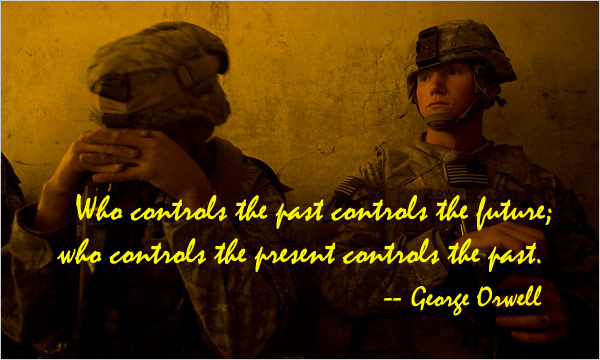Freedom Depends on Printed Books, Not on the Online World
 Cluttered used bookstores and well-stocked home libraries are on the decline. The monastic libraries of medieval Europe always had a back room where books were stored in helter-skelter heaps, untouched for decades and centuries, then rediscovered by a passing scholar. Knowledge was mysterious and sacred, not to be discarded.
Cluttered used bookstores and well-stocked home libraries are on the decline. The monastic libraries of medieval Europe always had a back room where books were stored in helter-skelter heaps, untouched for decades and centuries, then rediscovered by a passing scholar. Knowledge was mysterious and sacred, not to be discarded.
Families hung on to the diaries and letters of war veterans, often stored for decades in attic trunks, only to resurface in the hands of someone in a later generation. When historians like Niall Ferguson attempt to collect evidence of past thinking, a letter home from the battlefield may contain a thought that has never been circulated in the “official” record. A stray thought or opinion, perhaps crafted in a foxhole, will command clout that owes nothing to the usual vetting.
The newly arrived online world is quickly pursuing its paperless dreams. Information is crowded into ever smaller visual footprints. Thoughts are cluttered on hard drives and external storage devices. Within our own living generations, formatting changes make older disks and tapes all but unreadable. The 8” floppy that your grandfather trusted his innermost thoughts to is far more easily thrown into a trashcan by posterity.
Public libraries are less about books and more about computers and DVDs. College libraries are study halls. Grandkids who visit at Christmas don’t bring books anymore, only handheld electronic devices. Like printed books, houses on the real estate market still keep their currency, but electronic media upgrades are quickly made obsolete. Websites (this site included) are temporary. Everything will be erased once the bill isn’t paid or the site owner dies or gives up.
Wars will quickly target networks of every kind to cripple core infrastructures, including the military. Even rural states and cities—like Rapid City, South Dakota—will be targeted because of nearby military bases, though small-scale terrorist attacks will, until then, hit the larger urban areas.
Orwell’s famous novel of 1948 (1984) predicts how easy social control can be in the newly emerging computer world. Without books, history on “telescreens” will be globally revised to fit the needs of current power brokers. Online libraries contain only a few “books”—such as NBC, CBS, ABC, PBS, and a few others–with look-alike programming and viewpoints.
It’s about control. Books were once offline, in homes and libraries. Now all online research can be tracked and taken out of context at some future time. Freedom means having your own thoughts–and books.
 Cluttered used bookstores and well-stocked home libraries are on the decline. The monastic libraries of medieval Europe always had a back room where books were stored in helter-skelter heaps, untouched for decades and centuries, then rediscovered by a passing scholar. Knowledge was mysterious and sacred, not to be discarded.
Cluttered used bookstores and well-stocked home libraries are on the decline. The monastic libraries of medieval Europe always had a back room where books were stored in helter-skelter heaps, untouched for decades and centuries, then rediscovered by a passing scholar. Knowledge was mysterious and sacred, not to be discarded.